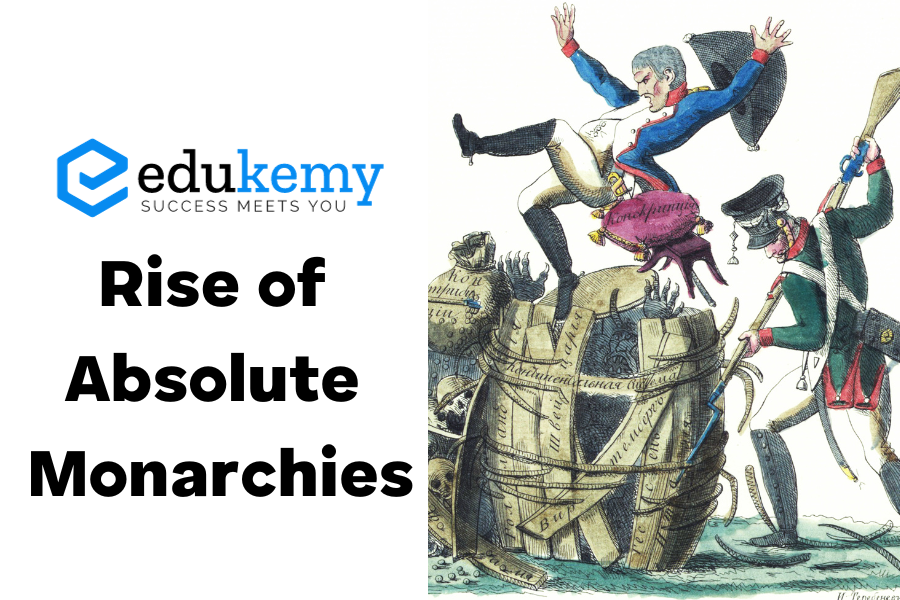
The rise of absolute monarchies was a significant political development in Europe during the transition from the Middle Ages to the Modern Era. Here’s an overview of this transition:
- The decline of Feudalism and King-Merchant Nexus: The weakening of feudalism and the growing influence of merchants contributed to the rise of absolute monarchies. As the power of feudal lords diminished, kings were able to assert more control over their territories. The alliance between the monarchy and the emerging merchant class further strengthened the authority of kings.
- Consolidation of Power: Absolute monarchs sought to centralize political authority by subjugating feudal lords and curtailing their autonomy. They aimed to establish a strong, centralized government that could effectively govern the entire realm. This often involved efforts to diminish the power of regional nobility and assert royal control over key institutions.
- Denmark’s Early Adoption of Absolutism: Denmark was one of the first European countries to formally include absolutism in a written constitution in 1665. This marked a significant step towards establishing an absolute monarchy, where the king held virtually unchecked authority over the state.
- Strong Monarchies in Europe: Several European nations saw the rise of absolute monarchies during this period. Prussia (modern-day Germany), England, the Dutch Republic, Austria, and France were among the countries where powerful monarchs emerged. Each of these monarchs sought to consolidate their power and assert greater control over their realms.
- Louis XIV and France: Louis XIV, known as the “Sun King,” was a prominent example of an absolute monarch. He ruled France from 1643 to 1715 and is often associated with the height of absolutism. Louis XIV centralized power expanded royal authority, and pursued policies aimed at strengthening the French state. By the early 18th century, France had become a dominant force in Europe.
The rise of absolute monarchies represented a shift towards centralized, authoritarian rule in many European nations. These monarchs exerted significant control over political, economic, and social affairs, often to consolidate and expand their power. This era laid the groundwork for the political developments that would shape Europe in the subsequent centuries.
Contents
- 1 Frequently Asked Questions (FAQs) about Rise of Absolute Monarchies
- 1.1 Q1: What is the Rise of Absolute Monarchies?
- 1.2 Q2: What factors contributed to the emergence of Absolute Monarchies?
- 1.3 Q3: Who were some notable Absolute Monarchs during this period?
- 1.4 Q4: What impact did Absolute Monarchies have on society and governance?
- 1.5 Q5: How did the Rise of Absolute Monarchies influence the course of history?
- 2 In case you still have your doubts, contact us on 9811333901.
Frequently Asked Questions (FAQs) about Rise of Absolute Monarchies
Q1: What is the Rise of Absolute Monarchies?
A1: The Rise of Absolute Monarchies refers to a historical period, primarily in the 16th and 17th centuries, when monarchs gained unprecedented power and control over their realms. Absolute monarchs wielded authority without significant checks and balances, often centralizing power to strengthen their rule.
Q2: What factors contributed to the emergence of Absolute Monarchies?
A2: Several factors played a role in the rise of Absolute Monarchies. The aftermath of religious conflicts, such as the Thirty Years’ War, created a desire for strong centralized rule to maintain order. Additionally, economic changes, like the growth of mercantilism, increased the need for monarchs to oversee and regulate commerce for the benefit of the state.
Q3: Who were some notable Absolute Monarchs during this period?
A3: Prominent Absolute Monarchs include Louis XIV of France, who famously declared “L’État, c’est moi” (I am the state), highlighting the concentration of power in the monarch. Peter the Great of Russia is another example, known for modernizing and westernizing his country through strong central control.
Q4: What impact did Absolute Monarchies have on society and governance?
A4: Absolute Monarchies centralized power, leading to more efficient governance but often at the expense of individual freedoms. The monarchs’ authority extended to areas such as law, taxation, and military control. While they promoted stability, critics argued that the lack of checks and balances could lead to tyranny.
Q5: How did the Rise of Absolute Monarchies influence the course of history?
A5: The era of Absolute Monarchies significantly shaped the political landscape of Europe and beyond. It set the stage for later political philosophies, such as absolutism and constitutionalism, and contributed to the ongoing debate about the balance between centralized authority and individual liberties in governance.
In case you still have your doubts, contact us on 9811333901.
For UPSC Prelims Resources, Click here
For Daily Updates and Study Material:
Join our Telegram Channel – Edukemy for IAS
- 1. Learn through Videos – here
- 2. Be Exam Ready by Practicing Daily MCQs – here
- 3. Daily Newsletter – Get all your Current Affairs Covered – here
- 4. Mains Answer Writing Practice – here

